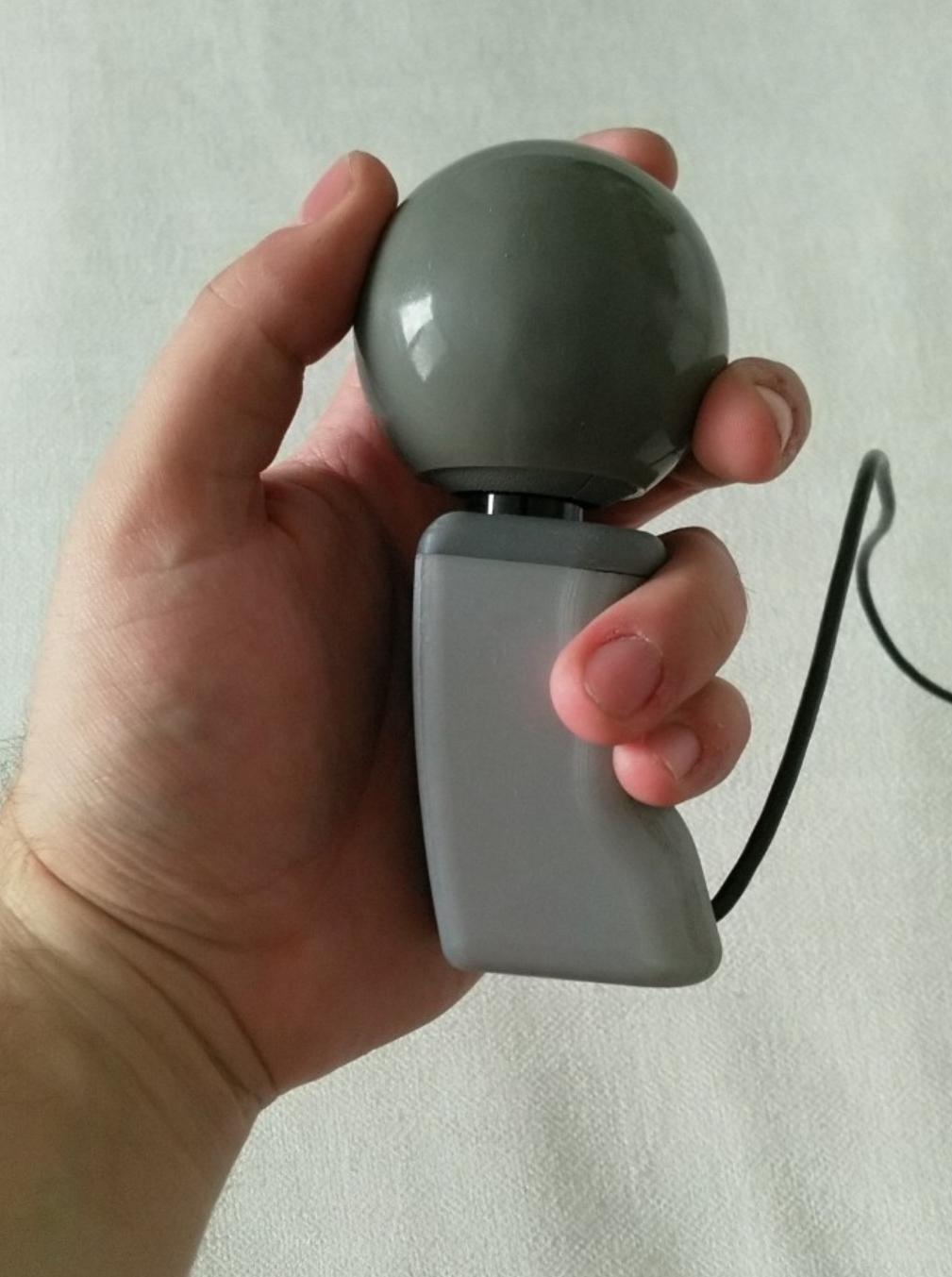Neurohack brainstorms solutions for young people with SMA

Team Tekuma's force-based joystick
An accessibility controller, an automatic mattress, a mindfulness support game and a muscle stimulation solution – all designed to assist teenagers living with devastating neurological disorders like spinal muscular atrophy (SMA) – have taken top spots in the Biogen Neurohack.
The Biogen Neurohack is a collaboration between the University of Adelaide’s Australian eChallenge and biotechnology company Biogen. It challenged participants to come up with ways to improve the mental and physical outcomes of people with neurological disorders such as SMA which is a life-limiting genetic disorder characterised by muscle weakness and wasting.
“The University of Adelaide is thrilled to be partnering with Biogen to provide a creative platform for participants to develop innovations that could potentially transform the lives of young people with neurological illnesses,” says Professor Noel Lindsay, Pro Vice-Chancellor (Entrepreneurship), University of Adelaide.
“These young people have daily struggles and it is so important for us all to live a day in their shoes to fully appreciate what they have to deal with. It is truly a privilege to help create a product or service that can positively impact someone’s life and this is the power of entrepreneurship in action.”
Each of the top teams won $1500 in prize money for their winning concepts which were:
- Tekuma
A force-based joystick, called the Tekuma Orb, will allow users to intuitively control any drone, rover, robot or other device with one hand. The idea, developed by ThincLab residents Annette McClelland and Michael Griffin, will help people with SMA control complicated devices simply and effectively. - Green Team
The team, headed by Annie Simpson, created a mattress than moves patients during their sleep using sine-wave technology to prevent sores and discomfort. Parents and carers of people with SMA have to roll them over constantly during the night so the solution will do this for them. - Panache
Electrical muscle stimulation technology which may gamify rehabilitation. Team Panache's idea will make physio more enjoyable, which is essential for keeping patients’ muscles toned. - Mutiny Games
Kosta Canatselis’s concept for a fun video game promotes mindfulness and emotional support for players. Many SMA patients are in their teens and experience a range of mental health issues.
Hosted by experts from both Biogen and the University’s Australian eChallenge, the Neurohack combined the knowledge and expertise of world leaders in neuroscience research and development, Biogen, with the internationally renowned experts in early stage entrepreneurship and innovation, the Australian eChallenge.
“These young people have daily struggles and it is so important for us all to live a day in their shoes to fully appreciate what they have to deal with. It is truly a privilege to help create a product or service that can positively impact someone’s life and this is the power of entrepreneurship in action.”Professor Noel Lindsay
“The ideas that the participants brainstormed were diverse in nature and of a high quality: the team pitches were very impressive given the limited time they had to work on the ideas,” says Dr Stephane Verhaeghe, Country Medical Head, ANZ at Biogen.
“The teams showed a genuine interest in improving the lives of teenagers living with neurological disorders. They took a holistic approach to tackling problems.
“One team suggested an innovative mentoring platform for teenagers with SMA who were reluctant to take their prescribed medications.”
SMA is caused by a loss of specialised nerve cells, called motor neurons that control muscle movement. Children with the most serious type of SMA will only live a few years. However, people who've been treated with new SMA drugs have seen promising improvements in their quality of life and their life expectancy.
Julie Cini, CEO of SMA Australia, was a judge in the Biogen Neurohack.
“The majority of the participants didn’t have a lot of first-hand knowledge of what a ‘day in the life’ looked like for people living with SMA,” says Ms Cini.
“A lack of independence is a major frustration for young adults with SMA. Many teenagers need assistance with feeding, toileting, hygiene, dressing, and mobility.
“It was impressive how the teams shaped their ideas after watching the case study videos and quickly developed effective ideas to help teenagers with SMA.”
Participants in the two-day event ranged from first year University of Adelaide students to PhD students from health and medical science backgrounds, with a couple of non-students involved. The youngest participant was 19 and the oldest is in their 30s. Thirty-four people took part in the Biogen Neurohack.
The winners of the Biogen Neurohack will go on to the eChallenge Biogen stream where they will continue to develop or pivot their current ideas. The winners of this stream will be announced later in the year at the Australian eChallenge Awards.
Please visit www.adelaide.edu.au/echallenge/neurohack for more information about the Biogen Neurohack and www.adelaide.edu.au/echallenge/australian-echallenge for more information about the Australian eChallenge or contact Zrinka Tokic at zrinka.tokic@adelaide.edu.au or phone +61 (0)8 8313 7131.
August is SMA awareness month.
